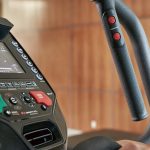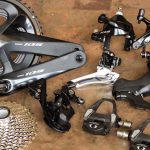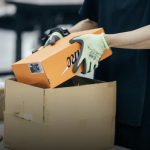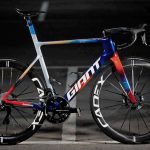In the United States, it’s hard to imagine revolutionizing the healthcare delivery system with a single-speed, steel-frame comfort bike. But take that bike to sub-Saharan Africa and you can really have an impact.
That’s what privately held Kona Bicycle Co. has learned since agreeing in 2005 to design a bike to extend the reach of healthcare workers in sub-Sahara Africa for Rodale Press’ BikeTown Africa project. Five years later, Kona partners Jacob Heilbron of Vancouver, BC and Dan Gerhard of St. Louis are on track to ship their 3,000th donated bike to Africa this summer. Established in 2005 as an outgrowth of Bicycling magazine’s BikeTown USA program, BikeTown Africa is a partnership between the magazine’s publisher Rodale Press, Kona, the Bristol-Myers Squibb’s Secure the Future Foundation and the logistics company UTi.
While Rodale’s BikeTown USA program was launched in 2003 to help Americans adopt a healthier bike-powered lifestyle, BikeTown Africa is helping save lives in sub-Saharan Africa by greatly extending the range of home healthcare workers in their battle against HIV/AIDs and other diseases.
Workers who had to walk 15 kilometers one-way to visit a single patient in a remote village can now use their Kona AfricaBikes to visit up to five patients a day, according to dispatches from Rodale VP and Editorial Director Steve Madden, who has traveled to Africa several times to help hand over the bikes and monitor the program.
The faster transportation allows workers to spend more time caring for patients or spreading the message about the importance of being tested for HIV/AIDs or how AIDS is no longer a death sentence thanks to the modern anti-retroviral drugs they administer. Since delivering its first 200 AfricaBikes in Botswana in March 2006, BikeTown Africa has donated nearly 2,500 bikes to health care workers in Botswana, Mozambique, Namibia, Senegal, South Africa, Kenya and Swaziland.
In 2009, about 650 of the 750 bikes donated were Kona AfricaBikes with the balance coming from Trek. This summer Kona expects to deliver more than 400 bikes through the program. Much of the funding for BikeTown Africa is coming from Secure the Future, a $150 million initiative by the Bristol-Myers Squibb Foundation to organize a grass roots response to the HIV/AIDS epidemic.
The money has been used to build clinics, train home healthcare workers and research best practices for both treating and preventing the disease. When it became obvious that transportation would be a major hurdle in Botswana, the foundation contacted Rodale Press, which then worked with Kona to design a low cost durable bike for Botswana’s arid, flat and thorn-covered terrain.
Kona came up with AfricaBike, an inexpensive, single-speed, steel frame bike that uses 26-inch tires on a step-through frame and a Shimano coaster brake. The bike features a comfort saddle, a chain guard, basket, utility rack and Kenda tires that are especially resistant to the continent’s ubiquitous thorns. When Bicycling magazine readers and Kona customers began asking Kona how they could support the project, the company formed its own 501(c)(3) Kona Basic Needs so donors could make tax-deductible donations.
The charity is based in Switzerland, where it works not only with Kona’s European division, but with the many NGOs focused on Africa. This has enabled Kona to branch out beyond its work with BikeTown Africa. Last year, for instance, it donated 120 bikes to a water management project run by the World Wildlife Fund in Tanzania. The bikes will be used by members of local water user associations to monitor the usage and levels of water in the Great Ruaha River.
In Rwanda, it donated 120 bikes to a foundation that educates kids orphaned by genocide. By the end of this year the company will have donated more than 3,000 AfricaBikes to programs in nine African countries and Vietnam. In 2007, Kona began selling a three-speed version of the AfricaBike with an internal hub to the public through its dealers with a pledge to donate one to BikeTown Africa for every two sold. The company has since sold about 7,000 bikes.
“It’s timely that it came along when there was renewed interest in riding bikes for transportation and that has helped sell more,” Heilbron said. Now Kona is working to expand the program to any country in Africa that wants or needs help. The company has even helped assemble bicycle ambulances. Of course, BikeTown Africa is but one of many such initiatives in Africa. SRAM Corp. and Trek Bicycles say they have distributed more than 50,000 bicycles worldwide since founding World Bicycle Relief (WBR) in 2005.
WBR designs and distributes appropriate bicycles to improve access to healthcare, education and economic development opportunities in developing nations. WBR said the bicycle increases an individual’s carrying capacity fivefold, their daily reach fourfold and saves three hours for every ten miles traveled. Why such an outpouring, particularly from Kona, a small company that only has a handful of dealers in South Africa and virtually no exports to sub-Saharan Africa?
“It was time for cyclists to put something back into the worldwide community,” said Heilbron. “Whenever cycling gets in the news, it’s ‘We need bike paths here and we need change lockers when we ride to work, and we need sponsorship for our teams.’ It’s almost a selfish way to look at cycling and I think there was a feeling that we needed to do good works. Cycling…really needed to do something for cycling beyond the road-hogging spandex wearing image some people look at us as.” These good works have not gone unnoticed by the cycling community.
Heilbron has been astounded by the generosity of some supporters, including a Virginia Tech student who raised more than $20,000 while fundraising for the BikeTown Africa program in 2008. “It seems like anything you do, whether it’s good works or business, just takes time for some momentum to build,” Heilbron said. “All you have to do is buy a $400 bike to participate in the program. It’s not costing us very much.” This year the program will be visiting Gambia, Rwanda and Malawi. For more information visit: www.konaafricabike.com















